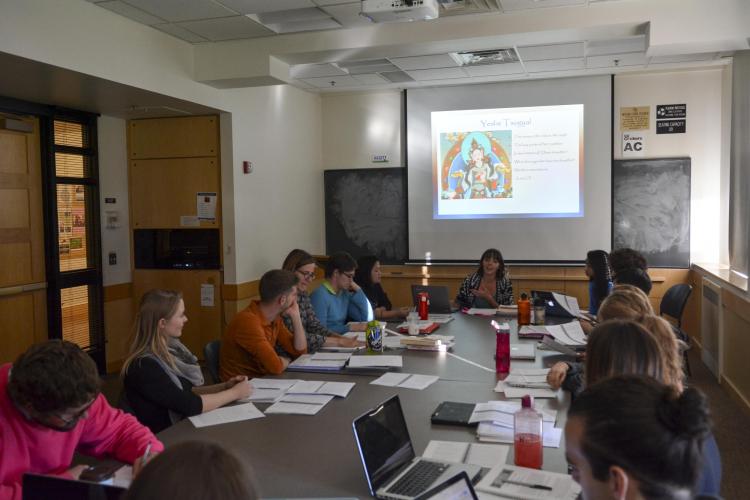Program Overview
The M.A. program in Religious Studies at the University of Colorado Boulder offers an opportunity for rigorous, intensive scholarship on a wide variety of topics and themes within the academic study of religion. Students who complete the program will have a broad understanding of the field, with special emphasis on issues of theory and method, as well as in-depth knowledge of their chosen area of specialization.

Program Strengths:
Religious Traditions
- Islam
- Hinduism
- Buddhism
- Christianity
- Judaism
- New Religious Movements
Regions
- North America
- Mediterranean World
- South Asia and Tibet
- Middle East and North Africa
Themes
- Religion, media, and popular culture
- Religious law, ethics, and interpretation
- Women, gender, and sexuality
- Ritual, affect, and the body
- Transnational religion and decolonization
- Religious minorities
- Biblical studies and tradition
- Religion, science, and reason
The faculty is highly interdisciplinary, encouraging students to explore their unique interests in ways best suited to their individual goals. Each student works closely with a faculty advisor to determine the best way to achieve those goals.
Religious Studies faculty maintain close relations with scholars in other departments of the University whose work complements their own, including Anthropology, Sociology, Asian Languages and Civilizations, History, Philosophy, Classics, Comparative Literature, Ethnic Studies, Women and Gender Studies, Media and Communications, and Art History and Fine Arts. M.A. students may take courses in other departments with their advisor’s approval. In addition, the Department offers a Dual M.A. degree with either the Department of History or the Department of Asian Languages and Civilizations for those students who desire a truly interdisciplinary program of study.
The Department prides itself on the supportive, collegial environment created by graduate students and faculty. Students typically find that they quickly make friends with others and enjoy being part of the student community, a process that is encouraged by the open and accessible faculty.

